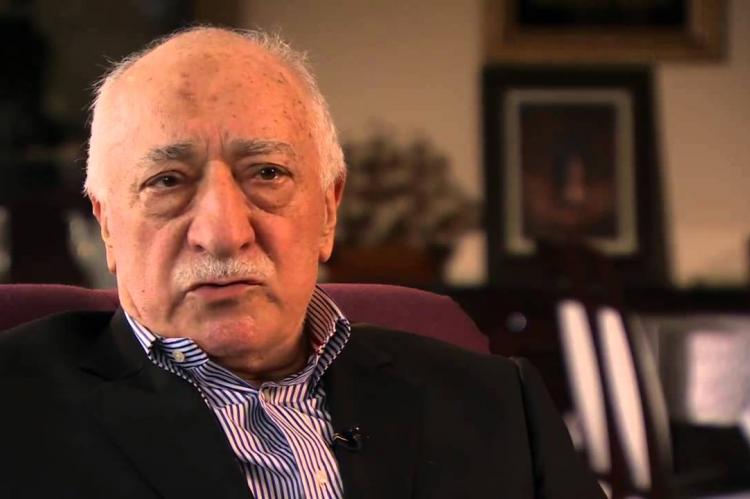Fethullah Gulen claims he is not behind the coup attempt in Turkey
Fethullah Gulen, a Turkish congregation leader living in the US, denies any involvement in the coup attempt in Turkey
Fethullah Gulen penned an article for the New York Times on 25 July 2016, ten days after the failed coup attempt in Turkey. In the article, Gulen denies any involvement in the recent coup attempt and asks the US not to extradite him. He says:
“Throughout my life, I have publicly and privately denounced military interventions in domestic politics. In fact, I have been advocating for democracy for decades. Having suffered through four military coups in four decades in Turkey — and having been subjected by those military regimes to harassment and wrongful imprisonment — I would never want my fellow citizens to endure such an ordeal again. If somebody who appears to be a Hizmet sympathizer has been involved in an attempted coup, he betrays my ideals.”1
Gulen is a 75 years old Turkish cleric who lives in self-imposed exile in the US state of Pennsylvania since 1999. He is said to have moved there for medical reasons and has stayed there since then. He established a movement called Hizmet, meaning “service” in Turkish.
Gulen’s sermons and the confessions of his followers raise doubt as to his involvement in the coup attempt. For example, in a video, Gulen encourages his followers to infiltrate Turkish state institutions for the future. In the video he says:
“The presence of our friends [in certain positions] is a guarantee for our Islamic future. To this end, the presence of our friends within the judiciary, military or in another vital position should not be evaluated as individual posts. These people are a guarantee for us in those units [judiciary, military and so on]. These are the pulse of our existence to a certain extent. It is highly important to protect our friends in any of these positions. Our friends will have bright futures within the system…”2
In the evening of the failed coup, the chief of staff of the Turkish Armed Forces Hulusi Akar said in his testimony to prosecutors that while he was being held captive by pro-coup soldiers, he was asked to speak to Gulen, but he refused to do so. Akar said:
“I believe those coup-plotters are members of [Gulen’s] organization. I think they thought their organization would take a huge blow after our Supreme Military Council meeting in August — which we prepared for studiously. This terror organization probably foresaw the outcome of the upcoming meeting and attempted a coup by bombing the parliament building and security offices, killing civilians, attacking their own brothers-in-arms and units with a ferocity and dishonor never seen before.”3
Likewise, chief justice reporter judge Ebubekir Basel, who was detained in the investigation of the failed coup attempt and was later set free, admitted the existence of Gulenists within judiciary. He said:
"Our job was to create a new era in bureaucracy, and hinder those who attempted to stop us. We would prevent people, who are not fit for this purpose, from being appointed to certain positions and also we would not allow those to return to their positions ever again."4
Ex-chief of police Gursel Aktepe, who had been on the wanted list, was among the pro-coup soldiers in the evening of the attempted coup and he said:
“I have sympathy for Gulen. On the evening of the coup, I received a text reading `everyone should go to their work place`, so I went to Ankara Police Department....This coup attempt cannot have taken place without the knowledge and order of Fethullah Gulen, who is the top person in this organization.”5
Levent Turkkan, the aide-de-camp of the chief of staff Akar, said in his testimony that he belonged to the Gulen movement, and that he met the members of the Gulen movement during elementary school. He added that he was given the exam questions by members of Gulenists in 1989 before he took the Military School Entrance Exams. He also mentioned that he placed a bug in the room of former chief of staff Necdet Ozel upon the request of a senior Gulen member.5
Latif Erdogan (no ties to the president), a former close friend of Gulen who later split with him after he concluded that Gulen was no longer simply trying to spread the ideals of honesty into public life, said:
“Hundreds of people would have died if the coup had been successful. The country would have slipped inevitably into civil war. Gulen is a cruel, cruel man. Turkey has avoided catastrophe. They didn’t expect people to take to the streets to defy the tanks. ... I agree that it is a parallel state. At the beginning, our goal was to educate people in religion and morality, but the movement went political when it got bigger. Gulen changed and turned to politics and wanted to be a leader who can rule Turkey.”6
- 1. http://www.nytimes.com/2016/07/26/opinion/fethullah-gulen-i-condemn-all-...
- 2. https://www.youtube.com/watch?v=AvqJp2RQKlk
- 3. https://www.corbettreport.com/meet-fethullah-gulen-deep-state-plotter/
- 4. http://aljazeera.com.tr/haber/cemaati-engelleyeni-bertaraf-ediyorduk
- 5. a. b. http://www.aljazeera.com.tr/al-jazeera-ozel/gulenin-darbedeki-parmak-izleri
- 6. http://www.middleeasteye.net/columns/who-fetullah-gulen-2030195174



